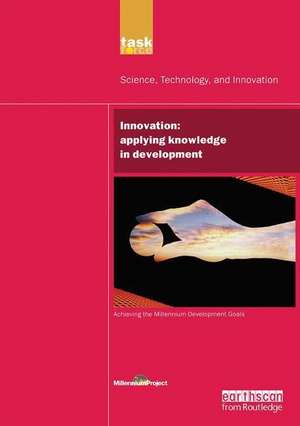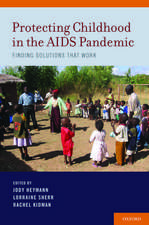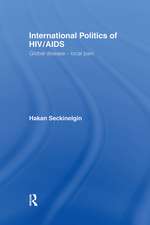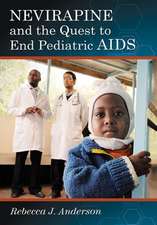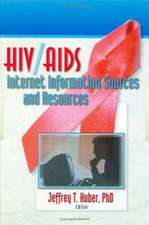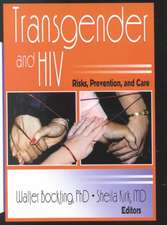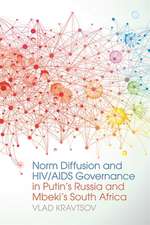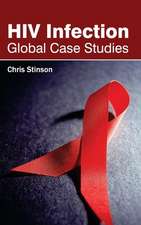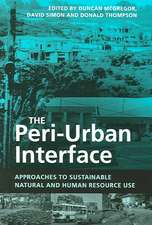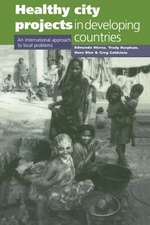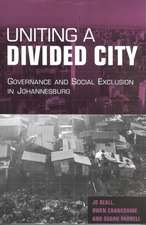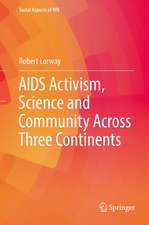UN Millennium Development Library: Innovation: Applying Knowledge in Development
Autor UN Millennium Projecten Limba Engleză Hardback – 30 sep 2020
The UN Millennium Project was commissioned by United Nations Secretary-General Kofi Annan to develop a practical plan of action to meet the Millennium Development Goals. As an independent advisory body directed by Professor Jeffrey D. Sachs, the UN Millennium Project submitted its recommendations to the UN Secretary General in January 2005.
The core of the UN Millennium Project's work has been carried out by 10 thematic Task Forces comprising more than 250 experts from around the world, including scientists, development practitioners, parliamentarians, policymakers, and representatives from civil society, UN agencies, the World Bank, the IMF, and the private sector.
This report argues that meeting the Millennium Development Goals will require a substantial reorientation of development policies to focus on key sources of economic growth, particularly the use of scientific and technological knowledge and related institutional adjustments. It outlines key areas for policy action, including focusing on platform or generic technologies; defining infrastructure services as a foundation for technology; improving higher education in science and placing universities at the centre of local development; spurring entrepreneurial activities; improving the policy environment; and focusing on areas of under-funded research for development."
| Toate formatele și edițiile | Preț | Express |
|---|---|---|
| Paperback (2) | 215.60 lei 6-8 săpt. | |
| Taylor & Francis – iun 2005 | 215.60 lei 6-8 săpt. | |
| Taylor & Francis – iun 2005 | 447.51 lei 6-8 săpt. | |
| Hardback (13) | 654.48 lei 6-8 săpt. | |
| Taylor & Francis – 30 sep 2020 | 654.48 lei 6-8 săpt. | |
| Taylor & Francis – 30 sep 2020 | 662.89 lei 6-8 săpt. | |
| Taylor & Francis – 30 sep 2020 | 838.64 lei 6-8 săpt. | |
| Taylor & Francis – 30 sep 2020 | 841.35 lei 6-8 săpt. | |
| Taylor & Francis – 30 sep 2020 | 842.60 lei 6-8 săpt. | |
| Taylor & Francis – 2 oct 2019 | 986.91 lei 6-8 săpt. | |
| Taylor & Francis – 30 sep 2020 | 986.91 lei 6-8 săpt. | |
| Taylor & Francis – 30 sep 2020 | 988.83 lei 6-8 săpt. | |
| Taylor & Francis – 18 dec 2020 | 993.44 lei 6-8 săpt. | |
| Taylor & Francis – 11 aug 2017 | 1015.39 lei 6-8 săpt. | |
| Taylor & Francis – 30 sep 2020 | 1273.66 lei 6-8 săpt. | |
| Taylor & Francis – 30 sep 2020 | 1274.77 lei 6-8 săpt. | |
| Taylor & Francis – 30 sep 2020 | 1276.70 lei 6-8 săpt. |
Preț: 988.83 lei
Preț vechi: 1329.98 lei
-26% Nou
Puncte Express: 1483
Preț estimativ în valută:
189.21€ • 198.08$ • 156.56£
189.21€ • 198.08$ • 156.56£
Carte tipărită la comandă
Livrare economică 05-19 aprilie
Preluare comenzi: 021 569.72.76
Specificații
ISBN-13: 9781138471924
ISBN-10: 1138471925
Pagini: 218
Dimensiuni: 178 x 254 mm
Greutate: 0.56 kg
Ediția:1
Editura: Taylor & Francis
Colecția Routledge
Locul publicării:Oxford, United Kingdom
ISBN-10: 1138471925
Pagini: 218
Dimensiuni: 178 x 254 mm
Greutate: 0.56 kg
Ediția:1
Editura: Taylor & Francis
Colecția Routledge
Locul publicării:Oxford, United Kingdom
Cuprins
Foreword -- Task force members -- Preface -- Acknowledgments -- Abbreviations -- Millennium Development Goals -- Executive summary -- Part 1 Mapping the terrain -- 1 Development as learning -- Transformational nature of technological innovation -- Scope of the report -- 2 How science and technology can contribute to achieving the Goals -- Contribution to human welfare -- Contribution to energy -- Contribution to health -- Contribution to water and sanitation -- Contribution to political stability and global security -- Technology in today’s global setting -- Conclusion -- 3 Innovation and economic advance -- Economic growth and innovation -- Technological divergence across countries -- Technology, innovation, and income levels -- Technological learning and public policy -- Conclusion -- Part 2 Gearing up -- 4 Platform technologies with wide applicability -- Information and communications technology -- Biotechnology -- Nanotechnology -- New materials -- Influence of platform technologies beyond-2015 -- Conclusion -- 5 Adequate infrastructure services as a foundation for technology -- Infrastructure and technological innovation -- Infrastructure and technological learning processes -- Innovation in energy: the sustainability challenge -- Research facilities as infrastructure -- Planning for infrastructure development -- Mobilizing the engineering profession and young professionals -- Establishing standards -- Conclusion -- 6 Investing in education in science and technology -- Primary and secondary school education in science -- Higher education in science, technology, and innovation -- Scientists and engineers in the global economy -- A new Colombo Plan for Sub-Saharan Africa -- New roles for universities and technical institutes -- Forging partnerships with nongovernmental organizations Conclusion -- 7 Promoting technology-based business activities -- Fostering the creation and growth of small and medium-size enterprises -- Improving access to financial capital -- Establishing industry extension services -- Establishing international partnerships and linkages -- Using government procurement -- Using selective industrial policies -- Complying with intellectual property rights regulations -- Meeting international standards and technical regulations -- Conclusion -- Part 3 Forging ahead -- 8 Acquiring knowledge in a globalizing world -- Enhancing the capacity to use available technologies -- Engaging in technology prospecting -- Attracting foreign direct investment -- Upgrading technological capabilities and systems -- Joining global value chains -- Conducting research to generate new technologies -- Forging international technology partnerships -- The role of the diaspora in a global economy -- New barriers to technological learning -- Conclusion -- 9 Advising governments on science, technology, and innovation -- The functions of scientific advisory groups -- The structure of scientific advisory bodies -- Building the capacity to provide advice -- Conclusion -- 10 Governing global technology -- International norm setting Operational activities -- Open access to scientific and technical information -- Launching innovation-focused missions -- Managing technological risks -- Conclusion -- 11 Conclusions and outlook -- Strategic outlook -- Looking ahead -- Notes -- References.
Descriere
The UN Millennium Project was commissioned by United Nations Secretary-General Kofi Annan to develop a practical plan of action to meet the Millennium Development Goals. This title argues that meeting the Millennium Development Goals requires a substantial reorientation of development policies to focus on key sources of economic growth.
Notă biografică
The Millennium Projecct was commissioned by the UN Secretary-General and sponsored by the United Nations Development Group, which is chaired by the Administrator of the United Nations Development Programme. The report is an independent publication that reflects the views of the members of the Task Force on HIV/AIDS, Malaria, TB, and Access to Essential Medicines, who contributed in their personal capacity.
